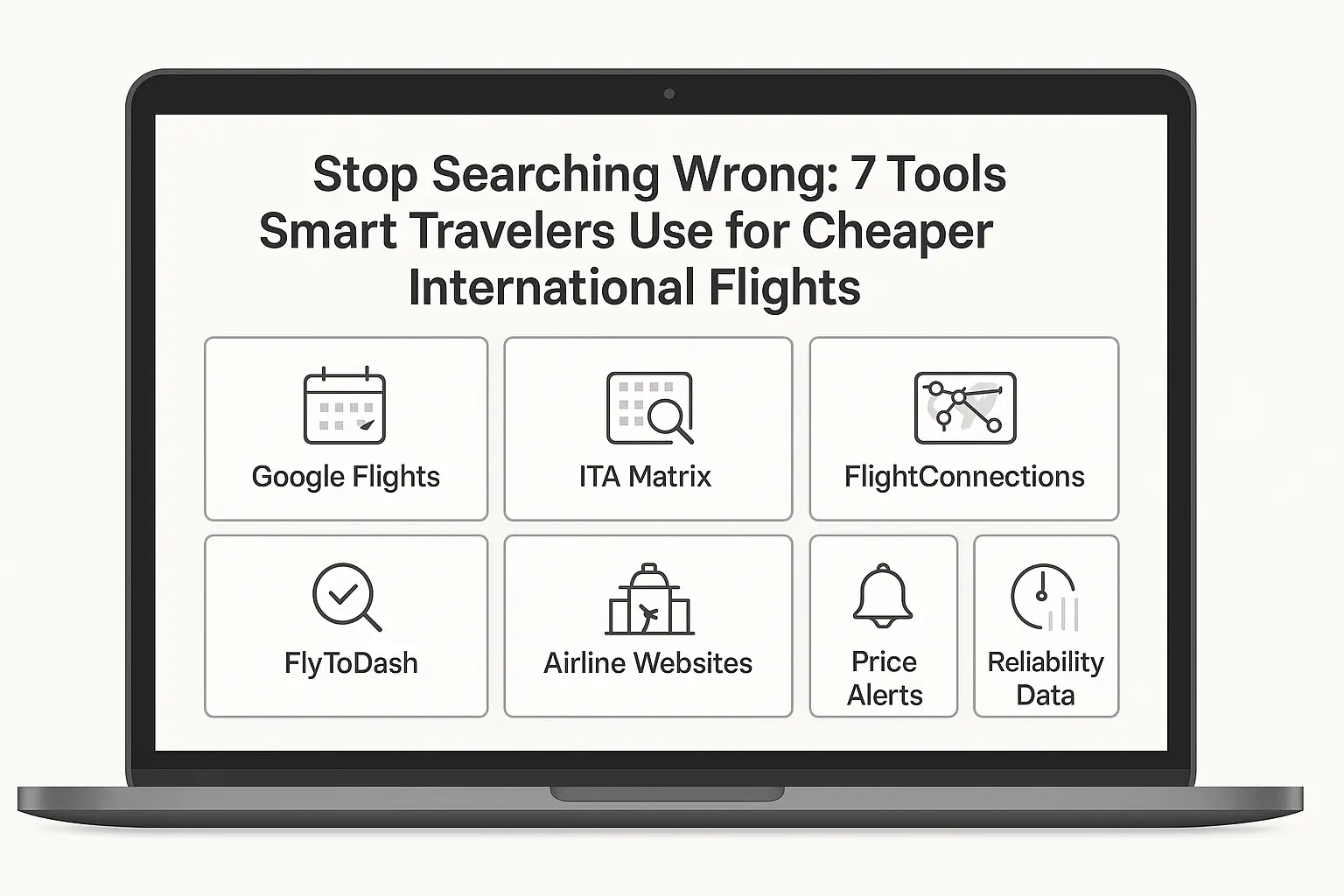
Let’s be honest: most of us “search for flights” the same way.
We open a bunch of tabs, type the same dates into three different websites, watch prices jump around for no clear reason… and then, eventually, we just pick something and hope we didn’t overpay.
If that sounds familiar, you’re not alone. The problem usually isn’t you — it’s the way you’re searching.
In this guide, I’ll walk through 7 tools smart travelers quietly use to find better international deals, without playing the “random price lottery.” Some of these you may know, some you probably don’t, and one of them is FlyToDash.
If you only use one tool to understand prices, make it Google Flights.
It’s not perfect, but it’s one of the best ways to quickly see:
Don’t treat Google Flights as the final place you book. Treat it as your radar screen. It shows you the “shape” of prices so you’re not flying blind from the start.
If you’ve ever wondered how serious travel hackers search flights, here’s one of their secrets: ITA Matrix.
It’s a bit old-school and not very pretty, but it was originally built for airlines and travel agents. You can:
You can’t book directly on ITA Matrix, but you can take the exact dates and airlines it finds and then book via the airline or your preferred site. Think of it as an engineer’s view of flight prices.
Sometimes the problem isn’t the price — it’s the route you’re asking for.
FlightConnections is a visual tool that shows which cities connect to which, and which airlines fly those routes. It’s perfect for international trips where you’re not sure whether to route through Doha, Istanbul, Dubai, Frankfurt, or somewhere else.
Use it to:
Once you know the route options, your searches on other tools become much more targeted (and a lot less random).
Most flight search sites try to show you the absolute lowest number — even if that “cheap” ticket comes with:
That’s one of the reasons I built FlyToDash AI — to focus more on smart, realistic options rather than “clickbait cheap.”
Instead of bombarding you with pop-ups and add-ons, FlyToDash helps you:
Use Google Flights or ITA Matrix to understand the landscape, then use FlyToDash when you’re ready to compare real options and make an actual decision.
Here’s a simple trick: once you’ve found a good route on any search site, always check the airline’s own website.
Why?
This is especially true for long-haul flights with airlines like Qatar Airways, Emirates, Turkish Airlines, Etihad, and others. After you see the price on a search tool, go to the airline’s site and verify it there.
Instead of manually checking flights every day, set price alerts and let the tools do the watching.
You can:
Price alerts work well when:
Think of alerts as your “background assistant” — they won’t always catch miracles, but they will save you from booking too early or too late without realizing it.
The cheapest ticket isn’t much of a win if you get stuck in an airport for 12 hours.
Before you lock in a long international route, it’s worth looking at basic reliability data. In the U.S., the Bureau of Transportation Statistics publishes on-time performance and delay figures for airlines and routes.
For international flights, you can also:
It’s not about obsessing over every number — it’s about avoiding routes that are consistently painful, even if they’re $70 cheaper on paper.
You don’t need to spend three hours with spreadsheets and 20 tabs open. Here’s a simple, realistic way to combine these tools in under 15–20 minutes:
If you’re tired of feeling like flight prices are playing games with you, try changing the tools you use instead of just changing the dates.
And when you’re ready to move from “research mode” to “let’s actually book something,” you know where to start: FlyToDash.